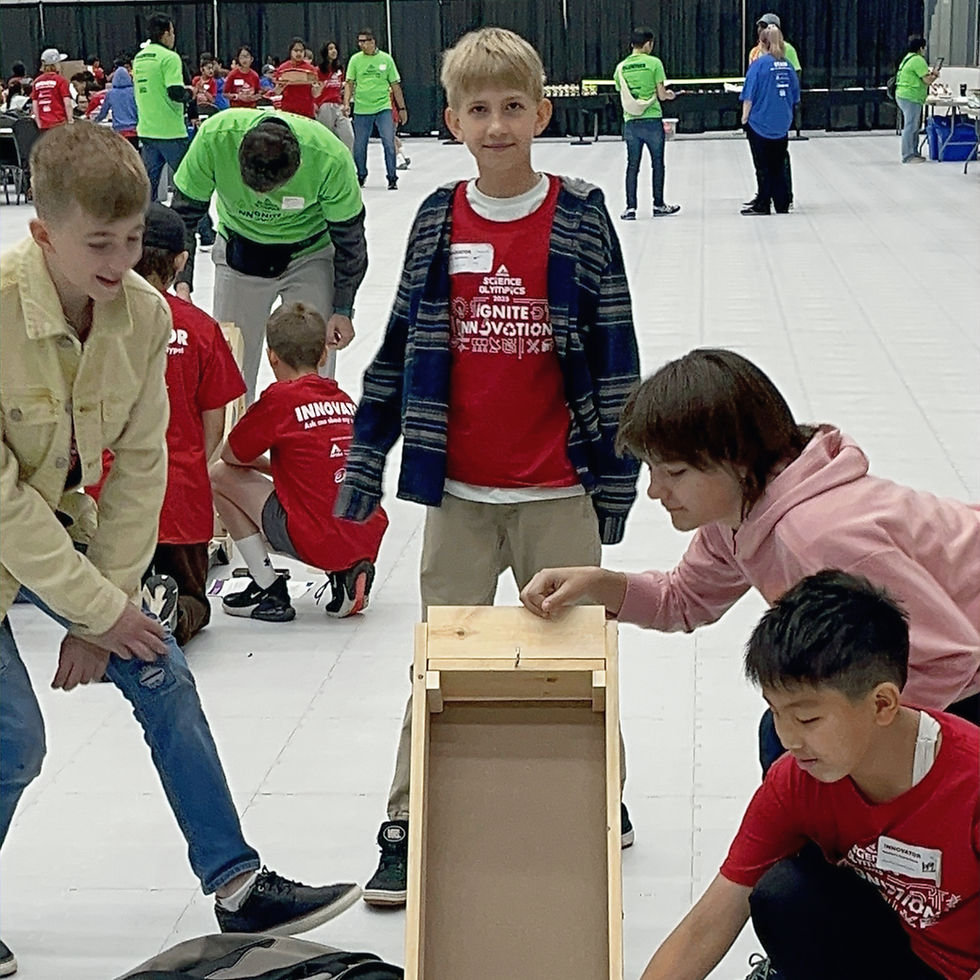Next Generation Science Program for elementary school students
We follow Next Generation Science curriculum, which is a transforming primary science education program from Kindergarten to Grade 6. It bridges the gap between traditional and modern learning methods paired with hands-on experiments in our Science Lab. We also prepare students for various science competitions across Alberta such as APEGA Science Olympics where students practice problem solving skills to develop solutions to challenges involving engineering and geoscience.
Grade 1:
Theme: Introduction to Living Things, Earth, and Weather
-
Unit 1: Living & Non-living things (Needs, Growth, Reproduction)
-
Unit 2: Plant and Animal Parts (Adaptation, Mimicry)
-
Unit 3: Parents & Offspring (Life Cycles, Similarities)
-
Unit 4: Earth & Space (Sun, Stars, Moon, Solar System)
-
Unit 5: Weather & Seasons (Measurement, Extremes)
🔬 Hands-on: Bean planting, thermometer experiments, microscope labs
📽 Project/Media: Bird nest model, solar system, astronaut documentary
Grade 2:
Theme: Health, Habitats, and Earth Changes
-
Unit 1: Human Body & Health (Systems, Sickness)
-
Unit 2: Plants & Animals (Classifying, Needs)
-
Unit 3: Habitats (Land, Water, Diversity)
-
Unit 4: Earth Processes (Rapid, Slow, Human-caused)
🔬 Hands-on: Organ system model, microscope work, volcano model
📽 Project/Media: Documentary videos (habitats)
Grade 3:
Theme: Life Science, Traits & Fossils
-
Unit 1: Living Things (Needs, Classification)
-
Unit 2: Plants (Parts, Growth)
-
Unit 3: Animals (Classification, Life Cycles)
-
Unit 4: Traits & Inheritance
-
Unit 5: Adaptations (Survival, Group Living)
-
Unit 6: Fossils & Organisms of the Past
🔬 Hands-on: Planting beans, microscope labs, chocolate chip mining
📽 Project/Media: Evolution models, adaptation projects
Grade 4:
Theme: Structure & Function in Living Systems
-
Unit 1: Classification & Cells
-
Unit 2: Plant Structures & Functions
-
Unit 3: Animal Structures & Senses
-
Unit 4: Human Body Systems
-
Unit 5: Ecosystems (Energy Flow)
🔬 Hands-on: Microscope labs (cells, organs), food chain model
📽 Project/Media: Human organ system model
Grade 5:
Theme: Life Diversity & Earth Systems
-
Unit 1: Diversity & Classification (Cells, Kingdoms)
-
Unit 2: Plants (Structure, Reproduction)
-
Unit 3: Animals (Vertebrates, Invertebrates)
-
Unit 4: Energy in Ecosystems
-
Unit 5: Earth Systems (Landforms, Water Cycle)
🔬 Hands-on: Microscope labs, water cycle project
📽 Project/Media: Flowers’ reproductive system
Grade 6:
Theme: Advanced Life Science & Ecology
-
Unit 1: Classification & Cells (Kingdoms)
-
Unit 2: Plants (Structure, Life Cycle)
-
Unit 3: Animals (Systems, Classifications)
-
Unit 4: Adaptations
-
Unit 5: Ecosystem Interactions (Energy Flow)
🔬 Hands-on: Microscope labs, ecosystem projects
📽 Project/Media: Food chain model

Key Features
• Extensive range which is adaptable to numerous science curriculums across Canada.
• Surpasses other textbooks by offering complete coverage of all scientific topics and skills at each grade level.
• Extensive variety of worksheets, quizzes and engaging videos throughout the course.
• Well- Integrated approach that enhances understanidng, confidence and independence in learners.
Our Science Lab
• A dedicated space equipped with specialized tools and materials ( microscope, beakers, cylinders, chemicals, test tubes etc.)
• Hands- on experiments to learn and explore scientific concepts through practical application.
• Strict safety protocols are followed (safety goggles, gloves, lab coats, adult supervision)
• Student document their experiments through detailed lab reports.
Engineering is recognized as a crucial part of science education, so it’s woven seamlessly into both the textbooks and a wide range of printable resources.
In our science labs, we highlight the importance of engineering and design. Students get plenty of chances to demonstrate what they’ve learned and practiced through engaging, hands-on activities that bring science to life.
To ensure your child is really grasping the concepts, we also use Next Generation Science Review and Assessment books. These resources help us check in on how well students are understanding the material at the end of each unit, and they give us a clear picture of their progress throughout the year. The final test in each book is a valuable tool for both teachers and parents, helping to pinpoint any areas where your child might need extra help or review.









Encourages problem-solving skills
Enhances mathematical literacy
Stimulates innovation
Mental resilience
Connecting more dots
Faster thinking

Let's get started!
Problem-solving at its core, bolstered by five interconnected elements: Attitude, Metacognition, Processes, Concepts, and Skills. It stands as the world's foremost mathematical framework, widely embraced on a global scale. The Singapore Math Curriculum is designed to foster process-oriented thinking, cultivate persistence, encourage thoughtful reflection, and inspire children to delve into potential solutions.
In the context of Singaporean education, it is widely recognized that individuals may not inherently excel in mathematics, and it is discouraged to declare oneself as someone who is not inclined towards mathematics. Instead, it is emphasized that, through a suitable methodology and mindset, every child has the potential to cultivate creative thinking and acquire the skills necessary to engage with mathematical challenges using a problem-solving approach.







